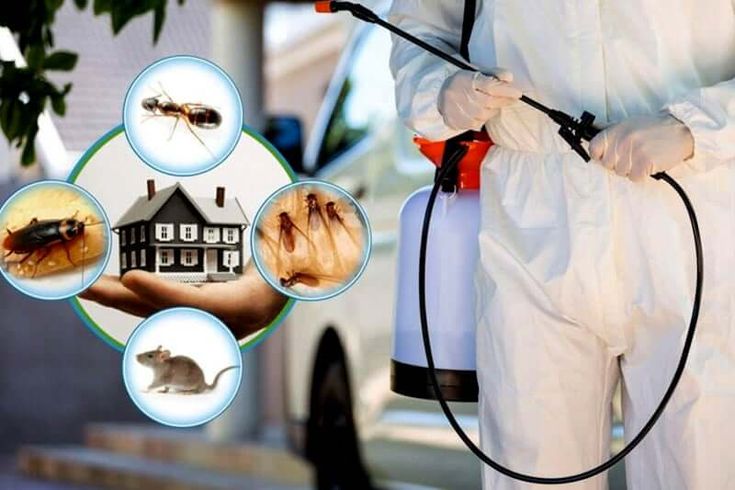How to Choose the Right Pest Control Service for Your Home: A Comprehensive Guide
How to Choose the Right Pest Control Service for Your Home: A Comprehensive Guide – Pest infestations can be a nightmare for any homeowner. Whether it’s termites, rodents, ants, or bedbugs, pests not only cause damage to your property but can also pose health risks to your family. Finding the right pest control service is crucial to managing these issues effectively. However, with so many pest control companies available, how do you choose the one that’s best for your home?
In this guide, we’ll cover everything you need to know about selecting the right pest control service, including key factors to consider, the types of services offered, and how to ensure you’re working with a reputable company. Read on to make an informed decision and keep your home pest-free.
1. Understanding the Importance of Professional Pest Control Services
Many homeowners may be tempted to handle pest problems using DIY methods. While this may work for minor issues, professional pest control services provide more thorough and lasting solutions. Here’s why hiring a professional is essential:
- Expert Knowledge: Pest control professionals understand the behavior of pests, which helps them locate nests and breeding areas, allowing for more effective treatments.
- Safer Solutions: Many pest control products are toxic. Experts know how to use them safely without harming you, your family, or pets.
- Preventative Measures: Beyond eliminating current infestations, professionals can implement long-term preventative measures to avoid future issues.
2. Types of Pest Control Services
Before choosing a pest control service, it’s important to understand the different types of services available. Pest control companies often specialize in certain areas, so identifying your needs will help you find the right service. Here are some common types of pest control services:
- Residential Pest Control: This is the most common type of service. It targets pests like rodents, ants, termites, cockroaches, and spiders that typically invade homes.
- Commercial Pest Control: Businesses, especially those in the food industry, may require pest control to comply with health and safety regulations. These services focus on ensuring that businesses are pest-free to protect customers and employees.
- Eco-Friendly Pest Control: Many companies now offer green pest control services that use non-toxic, organic products. This is an excellent option if you are concerned about the environmental impact of traditional pesticides.
- Emergency Pest Control: Some companies offer 24/7 services for urgent pest problems, such as bedbugs or rodents that need immediate removal.
3. Key Factors to Consider When Choosing a Pest Control Service
Selecting the right pest control company involves careful consideration of several factors. To ensure you’re choosing a reliable and effective service, here’s what you need to look for:
3.1. Experience and Expertise
When it comes to pest control, experience matters. A company that has been in the business for several years is more likely to have the knowledge and expertise to handle a variety of pests. Additionally, experienced professionals can customize their approach to suit the specific needs of your home.
3.2. Reputation and Reviews
Look for companies with positive reviews and a solid reputation. Online reviews on platforms like Google, Yelp, and the Better Business Bureau can give you an idea of how well a company performs. Be sure to read both positive and negative reviews to get a balanced view.
3.3. Licensing and Certification
It’s important to ensure that the pest control company you choose is licensed and certified. Most states require pest control companies to have proper certification to operate legally. Certified technicians are also more likely to be trained in the latest methods and safety protocols.
3.4. Insurance
Make sure the company has liability insurance. This protects you in case of any damage caused to your home during the pest control process. A well-insured company shows that they are professional and take their work seriously.
3.5. Service Plans and Guarantees
Different companies offer different service plans, ranging from one-time treatments to regular maintenance plans. Depending on the severity of your pest problem, you may want a company that offers follow-up visits or even guarantees their work. Some companies will come back for free if pests return within a certain period.
3.6. Cost and Value
Cost is an important factor when choosing a pest control service, but it shouldn’t be the only consideration. Look for a company that provides value for money. Avoid choosing a service solely based on price, as extremely low-cost options may indicate poor quality. Request quotes from several companies to compare pricing.
4. Eco-Friendly Options: Is It Right for Your Home?
In recent years, eco-friendly pest control solutions have gained popularity due to concerns about the environmental impact of traditional pesticides. These services often use organic and non-toxic products, making them safer for your family, pets, and the environment. Here’s what you need to know about eco-friendly pest control options:
- Benefits:
- Safe for humans and pets.
- Lower environmental impact.
- Ideal for homes with children or individuals with allergies.
- Drawbacks:
- May be less effective for severe infestations.
- Can be more expensive than traditional methods.
If you are concerned about the environmental impact of pest control, it’s worth asking companies about their green options.
5. Pest Control Techniques and Methods
Pest control services employ a range of techniques depending on the type of pests and the severity of the infestation. Familiarizing yourself with these methods can help you choose the best service for your needs:
5.1. Chemical Treatments
Chemical treatments are the most common method used in pest control. These treatments involve applying pesticides or insecticides to eliminate pests. Chemical treatments can be highly effective but may also come with risks, particularly if misused.
5.2. Integrated Pest Management (IPM)
IPM is a more holistic approach that involves a combination of techniques, including chemical and non-chemical methods. The goal of IPM is to manage pest populations with minimal environmental impact. This method is often preferred for its effectiveness and sustainability.
5.3. Physical Pest Control
Physical methods involve using traps, barriers, and mechanical devices to remove or prevent pests. This method is commonly used for rodents, and is often part of a larger pest management strategy.
5.4. Biological Control
Biological control uses natural predators or parasites to manage pest populations. For example, introducing beneficial insects like ladybugs can help control aphid infestations. This is a more natural and sustainable approach, though it may not be suitable for all pests.
6. Evaluating the Company’s Customer Service
Customer service is a key indicator of how a pest control company operates. A company that values customer satisfaction is likely to be more reliable and responsive to your needs. Here are a few ways to evaluate a company’s customer service:
- Initial Contact: Pay attention to how the company handles your first inquiry. Are they friendly, knowledgeable, and professional?
- Communication: Good communication is essential throughout the process. The company should be transparent about pricing, services offered, and expectations.
- Responsiveness: How quickly does the company respond to your requests? Timely responses are crucial, especially when dealing with urgent pest issues.
7. Common Pests and the Services They Require
Different pests require different treatments, so it’s important to know what you’re dealing with before choosing a pest control service. Here are some common pests and the specific services they may require:
- Termites: Termites can cause significant structural damage to your home. Termite control usually involves specialized treatments like bait systems or fumigation.
- Rodents: Rats and mice can spread disease and cause damage by chewing on wires and insulation. Rodent control may involve traps, bait, and exclusion methods.
- Ants: Ant infestations can be tricky to eliminate. Professional pest control services often use targeted chemical treatments to eradicate ant colonies.
- Bedbugs: Bedbugs are notoriously difficult to remove. Bedbug treatments may include heat treatments, steam cleaning, and insecticides.
- Cockroaches: Cockroaches are resilient and can survive in harsh conditions. Pest control companies use a combination of baits, traps, and insecticides to control roach populations.
8. Preventing Future Infestations
Once the pest control service has eliminated the problem, the next step is preventing future infestations. Reputable companies will often provide advice and tips for keeping your home pest-free. This may include:
- Sealing cracks and gaps in your home’s exterior.
- Regular cleaning and removal of clutter.
- Proper food storage and waste management.
- Routine maintenance and inspections.
9. Red Flags to Watch Out For
Unfortunately, not all pest control companies are trustworthy. To avoid scams or poor-quality services, keep an eye out for the following red flags:
- No proof of licensing or certification.
- Lack of online reviews or a suspiciously high number of negative reviews.
- Pressure to sign long-term contracts without proper explanation.
- Unrealistically low prices or high-pressure sales tactics.
Conclusion
Choosing the right pest control service for your home is a critical decision that requires research and careful consideration. By focusing on experience, reputation, certification, and customer service, you can find a company that will effectively and safely eliminate pests from your home. Whether you’re dealing with termites, rodents, or bedbugs, a professional pest control service will provide the expertise and long-term solutions needed to keep your home pest-free.
Remember, it’s not just about eliminating pests—it’s about finding a service that fits your budget, values safety, and provides lasting protection. With the right pest control provider, you can maintain a healthy, comfortable, and pest-free living environment for your family.
While choosing the right pest control service is essential for your current infestation, maintaining a pest-free home requires continued vigilance and effort. There are a few final steps you can take to ensure that your chosen pest control service meets your long-term expectations and helps prevent future issues.
10. Setting Up Regular Inspections
Even after a pest infestation has been addressed, scheduling regular inspections with your pest control service is highly recommended. Inspections help in detecting early signs of a new infestation before it becomes a more significant problem. Depending on your location and the types of pests common in your area, these inspections may be seasonal or conducted annually.
Regular inspections also allow professionals to identify vulnerabilities in your home that could attract pests, such as standing water, gaps in insulation, or food storage issues. By addressing these areas proactively, you minimize the risk of dealing with larger infestations later on.
11. Customized Treatment Plans for Your Home
Pest control isn’t a one-size-fits-all service. Every home has its unique vulnerabilities to pests based on its location, structure, and the lifestyle of its occupants. A professional pest control company should be willing to customize its treatment plan to address your specific concerns.
For example, homes in humid climates are often more prone to issues like termites and mosquitoes, while homes near wooded areas may struggle with rodents or ants. Ensure the pest control company performs a thorough inspection of your property and develops a tailored plan that aligns with your needs.
- Seasonal Considerations: Pest activity often fluctuates based on the time of year. In the spring and summer, insects and rodents are more active. The right pest control service will adjust its approach seasonally to tackle specific pests prevalent during each period.
- Indoor vs. Outdoor Pests: Some pests, like cockroaches and rodents, typically invade the indoors, while others, like mosquitoes, can make outdoor living areas uncomfortable. Choose a pest control service that can manage both indoor and outdoor infestations to maintain a comfortable living environment year-round.
12. Transparency and Documentation
When working with a pest control company, it’s crucial to ensure full transparency. This includes understanding the types of treatments used, the costs involved, and what follow-up services are included. Ask for written documentation at every stage of the pest control process.
- Treatment Reports: After each service visit, the company should provide a detailed report of what treatments were applied, what areas were treated, and any pests that were found. This documentation is important for keeping track of your pest control history.
- Clear Contract Terms: If your pest control service offers recurring treatment plans, ensure that the terms of the contract are clear. Are there penalties for cancellation? What services are included in the contract? Avoid signing long-term contracts without thoroughly understanding the details.
- Pesticide Safety Information: Make sure that the pest control company provides you with information on the pesticides used, including safety precautions and potential health risks. You should also be informed about how long to stay away from treated areas and when it’s safe for children and pets to return.
13. Customer Support and Post-Treatment Care
Good customer service doesn’t end after the treatment is complete. A reliable pest control company will offer excellent post-treatment care to ensure that your home remains pest-free.
- Follow-Up Visits: Many pest control companies include follow-up visits as part of their service, especially if the problem persists. Ensure the company offers post-treatment inspections or touch-up services if necessary. This is especially important for pests like bedbugs or termites, which may require multiple treatments.
- Education on Pest Prevention: Pest control companies should provide guidance on how to prevent future infestations. This may include tips on sanitation, home repairs, or recommendations for products like pest-proof containers and door sweeps. A knowledgeable company will equip you with the information needed to keep pests at bay long-term.
- Emergency Contact Information: If pests return unexpectedly or you have concerns about a treatment, having access to emergency contact information is crucial. Make sure the company offers a reliable way to reach them for urgent issues or questions.
14. The Future of Pest Control: Trends and Innovations
The pest control industry continues to evolve with new technologies and methods that make pest management more efficient and eco-friendly. Staying informed about these trends can help you choose a service that uses the latest innovations in pest control.
14.1. Smart Pest Control Devices
Technology is making its way into pest control through the development of smart pest monitoring systems. These devices use sensors to detect pest activity and send real-time notifications to both homeowners and pest control professionals. Some systems are even capable of administering treatments automatically when pests are detected.
14.2. Drone-Assisted Pest Control
Drones are being used to monitor large outdoor areas for pest activity, particularly in agricultural and commercial settings. However, drones are starting to be employed for residential pest control as well, making it easier to inspect hard-to-reach areas like rooftops and attics.
14.3. Biodegradable Pesticides
In response to increasing concerns about the environmental impact of traditional pesticides, the industry is developing biodegradable alternatives. These pesticides break down naturally after use, minimizing harm to the environment. While not yet widely available, the push for greener pest control solutions is likely to grow in the coming years.
15. Why Timing Matters in Pest Control
Timing plays a significant role in the effectiveness of pest control. Seasonal pest patterns and the life cycles of different pests affect when and how treatments should be applied.
- Early Intervention: One of the most important aspects of pest control is early intervention. Don’t wait until an infestation has reached a crisis level before contacting a pest control service. The sooner you act, the easier and less expensive it will be to manage the problem.
- Seasonal Treatments: Certain pests, like mosquitoes, ticks, and ants, are more active during specific seasons. Make sure your pest control service schedules treatments in advance of peak pest seasons to prevent infestations before they start.
- Life Cycles of Pests: Many pests have distinct life cycles, and treatments are often most effective during specific stages. For example, treatments for fleas are most effective when applied during their larval stage. Understanding these cycles will help you schedule treatments at the most effective times.
16. Final Thoughts: Making the Right Choice
Choosing the right pest control service can be a daunting task, but by following the advice in this guide, you’ll be better equipped to make an informed decision. The key is to prioritize experience, reliability, and safety, ensuring the company you select has a proven track record of success.
Once you’ve chosen a company, remember that pest control is not a one-time solution. By staying proactive with regular inspections, tailored treatment plans, and preventive measures, you can keep your home protected against future pest invasions.
Ultimately, the right pest control service will do more than just eliminate pests—they will provide peace of mind and help you maintain a comfortable, healthy, and pest-free living environment. By selecting a service that aligns with your values, whether it’s eco-friendly solutions or long-term maintenance plans, you can enjoy a home free of unwanted guests for years to come.






